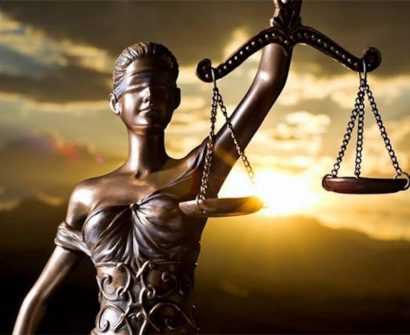
The Supreme Court of India has consistently worked to broaden the definition of the “right to life” as defined by article 21 of the indian constitution and to give it the greatest possible significance.
Another significant case in the history of the Indian court is shatrughan chauhan vs union of india, which advocates for the remission of death sentences when there are intervening circumstances. The Court has upheld that an individual’s “right to life” endures beyond receiving a death sentence and continues until their final breath, and that this right will be safeguarded even if the condemned prisoner is wearing a noose around their neck.
shatrughan chauhan vs union of india Case Facts
- The family members of death convicts Suresh and Ramji, who were given the death penalty in 1997 along with 13 other convicts, brought the current case, which centers on the issue of delay in deciding the mercy plea.
- After the Supreme Court denied their criminal appeal in 2001, the petitioners filed a mercy plea to the Indian President and Governor that same year.
- Despite the Governor’s decision to deny the mercy petition, neither the petitioners nor their families were informed of the decision.
- It took a good twelve years to compile all the necessary documents, trial court rulings, petitioners’ mercy petition status, etc.
- The President denied the petitioners’ request for mercy on February 8, 2013, but no written confirmation from the relevant authorities was issued, therefore the petitioners were unaware of this rejection until two months later through press reports.
- The current case was brought in with the prayer that all death sentence holders would have their sentences commuted to life in prison and with consideration for the excessive and unjustified delay in ruling on the compassion petition.
shatrughan chauhan vs union of india Issues
- Is there any evidence that the death penalty defendants’ Article 21 was violated by the delay in processing the mercy petition?
- Is it possible for the Executive’s inability or delay to decide on a mercy petition submitted in accordance with Article 72/161 of the Constitution to serve as a valid justification for commuting a death sentence into life in prison?
Contentions by the Parties
Petitioner:
- The executive’s use of the constitutional authority bestowed upon it by Article 72/161 has violated the petitioners’ fundamental rights.
- The executive orders against the petitioners that are under question were issued without considering additional factors (delay), which is necessary when making decisions of this nature.
- An undue delay in carrying out a death sentence would be a violation of the right to life under Article 21 and give the convicted person the opportunity to petition the court under article 32 of the indian constitution.
- The protection of people needs to come first at all times.
- Even in the absence of a President Order, the Court may consider the convict’s complaint in a petition filed in accordance with article 32 of the indian constitution if there is an unanticipated delay in the execution of a death sentence.
Respondent:
- It is claimed that there was a delay in supplying these facts for the President’s consideration of the Mercy Petition since they need to be collected from the State/jail authorities and involve lengthy discussion with both the State Government and the jail officials.
- Making a choice would require carefully examining these materials and weighing the benefits and drawbacks.
- The specifics of the case, the level of investigation necessary, and the quantity of mercy petitions filed on behalf of the accused can all affect how long it takes to review a mercy request. Furthermore, there cannot be a deadline for reviewing appeals for mercy.
- There is no deadline for handling the mercy petition in Article 72. and so it is not possible to set such a time limit.
- Because article 72 of the indian constitution is voluntary, no statutory provision or other authority may limit, amend, interfere with, or change it.
- For the mere reason of a delay, an executioner is not obliged to apply for a commutation. (D Shetty v. International Airport Authority). A person who has gone through the legal system and been found guilty of a horrible deed is sentenced to death. The fact that the execution was delayed does not absolve the offender of their responsibility for carrying out such a heinous act, as this penalty is open to appeal and reconsideration.
- Furthermore, it would not be in the victim’s best interests to commute a death sentence purely for the purpose of buying time.
shatrughan chauhan vs union of india Judgment
- A three-judge court handed down its ruling in shatrughan chauhan vs union of india on January 21, 2014.
- When commuting the death sentences of all 15 offenders to life in prison, the Supreme Court ruled that an excessive, unjustified, and prolonged delay in processing the mercy petition is enough justification in and of itself to grant the convict the right to ask for a commute.
- Article 21 of the inmates’ rights is clearly violated by the President’s delay in rejecting the compassion petition, which amounts to torture.
- At the same time, however, the Supreme Court ruled that the execution of a sentence could only take place in accordance with the constitutional mandate and declined to establish a threshold beyond which an unwarranted delay would be considered torture.
For any latest news, legal topics, judiciary exams notifications, patterns, etc watch Jyoti Judiciary’s YouTube channel for legal videos for any updates at https://youtube.com/@jyotijudiciarycoaching4852?si=2cwubh9d2A9urwJf








